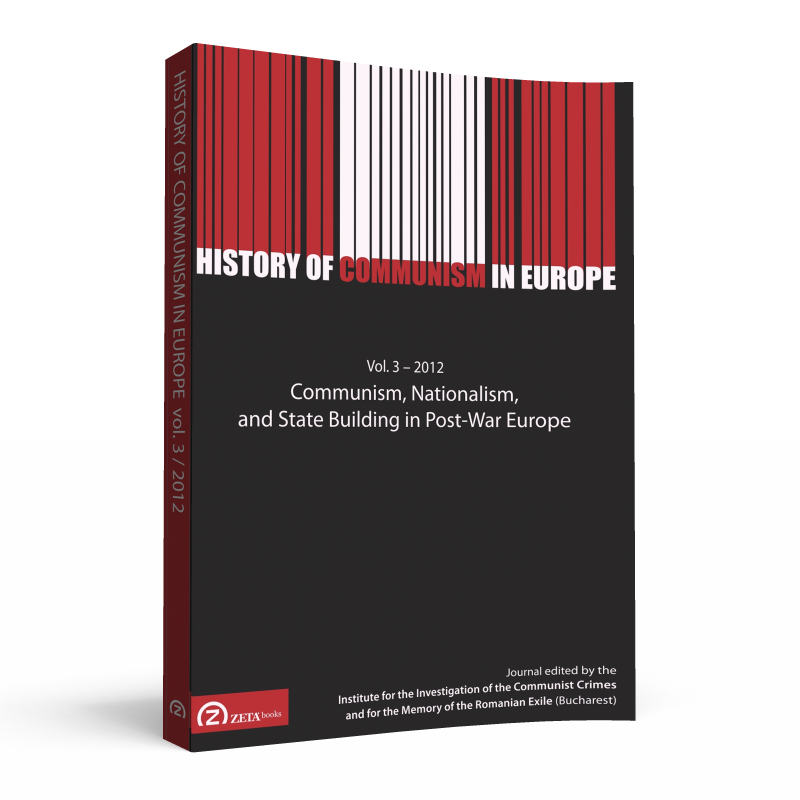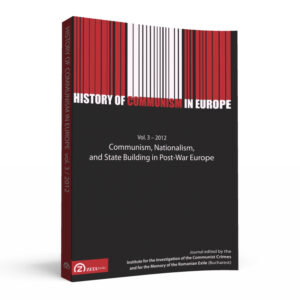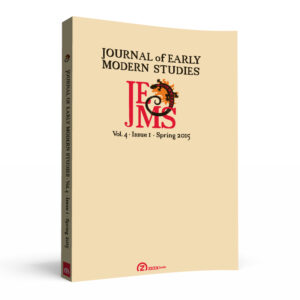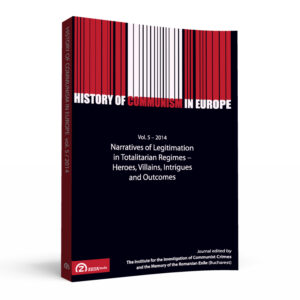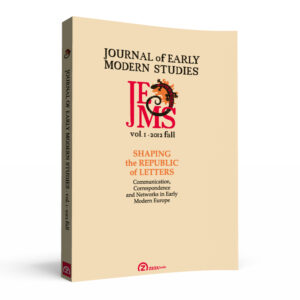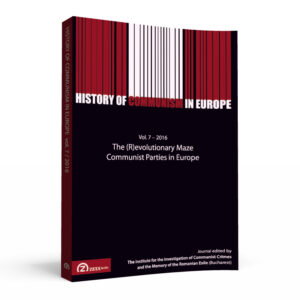CONTENTS
Bogdan C. IACOB: The Paradoxes of European Postwar
I. HOMOGENIZATION AS STATE-BUILDING
Paul McNAMARA: Competing National and Regional Identities in Poland’s Baltic “Recovered Territories”, 1945-1956
- Abstract: The article analyzes the manner in which Poland’s Baltic “Recovered Territories”, the three provinces of Szczecin, Gdańsk and Olsztyn, were incorporated into a re-constituted Polish state following the Second World War. It shows how the organic formation of a regional identity in the three Baltic provinces faced continuous interference from a regime with little or no understanding of the effects its state-building policies had upon their specific ‘transnational’ social, cultural, and demographic particularities. Despite the internal divisions in what was a fledgling pioneer society, the communist state never allowed for settler and indigenous groups to iron out their differences at their own pace and in their own way. Between 1945 and 1956, Polish settlers and indigenous groups in the Baltic Recovered Territories managed to form only a weak common identity not due to the policies of Poland’s Communist regime but in spite of them.
Dallas MICHELBACHER: The Deportation of Ethnic Minorities to the USSR and the Romanian National Idea
- Abstract: The article examines the general policies of the Romanian state in the immediate aftermath of the Second World War toward the German and Hungarian minority. The abuses of the human rights of ethnic minorities from 1944 until 1947 were some of the worst in the history of Romania. The massacres and deportations of German and Hungarian civilians remain a black mark on Romanian society. These actions were in keeping with the ideological pronouncements of Romanian nationalists from the interwar period. The rhetoric that legitimized these policies of ethnic cleansing continued to inform visions of the Romanian nation throughout the Communist period.
Sławomir ŁODZIŃSKI: Towards the Polish Nation-State. National Minorities in Poland between 1945 and 1989
- Abstract: The purpose of this paper is to analyze the effects of communist policies upon ethnic relations within a multinational state. I use the case of Poland in order to identify the general shifts and dynamics in nationalities polices in this country between 1945 and 1989. The study’s main focus is the processes by which Polish society was ethnically homogenized. I subsequently discuss the successive ways of building the Polish nation-state, from one phase of the communist regime to another, and the national mythologisation of historical memory, especially in relation to World War II. The paper also draws attention to a phenomenon, often ignored by scholarly literature, which took place in postwar communist societies within minority ethnic groups. I am referring to the preservation of minorities’ identities in the form of “a hidden ethnicity” in the context of group exclusion from the public sphere and of the disenfranchisement of specific ethnic historical memories within the wider societal narratives.
Luciana JINGA: Citoyenneté et Travail des Femmes dans la Roumanie Communiste
- Résumé: Les pratiques de l’État définissent et légitiment les divisions de genre et les identités genrées. Le point central de l’article est la nature de la citoyenneté des femmes, en Roumanie, pendant le régime communiste. Pour construire ses sujets genrés, le régime communiste a utilisé à la fois le discours officiel et le cadre législatif. La recherche este construite autour une étude de cas, l’activité salariée, uncarrefour pour toutes les politiques de l’état communiste envers sa population féminine, génératrice de libertés et sources d’inégalité en même temps. Il serait abusif d’affirmer que toutes les mesures prises par le régime communiste ont été vouées à l’échec. L’accès des femmes à l’éducation et l’entrée dans une activité professionnelle salariée ont été deux préoccupations majeures du régime communiste et la postérité de ces deux domaines mérite à être soulignée. Car, si la présence politique des femmes après 1989 a été insignifiante, sur le plan professionnel, les femmes ont maintenu et même renforcé leurs positions. Le degré de réussite scolaire à tous les niveaux d’études et les revenus obtenus par les femmes en Roumanie montrent que les actions du régime communiste dans ces domaines ont déterminé un changement durable et profond des mentalités et des comportements sociaux. Dans cette postérité disparate et nuancée on peut trouver les arguments d’une interprétation plus nuancée, de ce qu’a été la citoyenneté des femmes pendant le communisme.
II. NATIONALIZING POSTWAR SOCIETIES
Humberto CUCCHETTI: Communism, French Patriotism, and Soviet Legitimacy in France: Social Trajectories and Nationalism (1945-1954)
- Abstract: The following contribution analyzes the specific spaces for the legitimization of the defense of the “Soviet model” in France. To do so, rather than examining the policies of the Communist Party itself (often analyzed by French historiography), the paper approaches a vast set of organizational networks that have been commonly known as “transmission belts” of communism in France. Thus, the paper presents a universe of situations, individual trajectories, and associative frameworks that are deployed for in defense of the Soviet Union, from 1945 until 1954. In all these different areas and situations the paper points out instances of an intense militancy. As a result, there was a non-contradictory overlap between French patriotism, nationalism and the justification of Soviet hegemony in the context of the communization of Eastern Europe and of the Cold War.
Enis SULSTAROVA: Constructing Albanian Communist Identity Through Literature: Nationalism and Orientalism in the Works of Ismail Kadare
- Abstract: The communist regime in Albania considered literature to be one of the main ideological vehicles for the formation of the “New Albanian Man”. To this aim, a great part of literature in post-war Albania spoke of how not only did the Albanian people preserve their national identity throughout history, but also of how they fought on the side of European civilization and progress. In this process, a series of barbarian Others were constructed, because if national resistance and communism were to be linked together in a progressive tradition, then the Turks, counter-revolutionary social classes, capitalism and even “revisionist” betrayers of Marxism-Leninism represented the regressive tradition. By taking as a case study the literary works of Ismail Kadare, this paper argues that Kadare, in his depiction of the Turks as the Oriental other of the Albanian nation, employed the clichés and stereotypes borrowed from the European Orientalist tradition, in which the Turks largely are presented as the barbaric mirror to Europe. Later on, the danger coming from the “social-revisionism” of the Russian and Chinese communist states were portrayed in Kadare’s novels as the continuation of the “Asiatic threat”. The intended effect of Orientalism in Albanian literature was to emphasize the modernity of Albanian socialist society and to culturally justify the lonely road of Albanian communism.
Aurelia VASILE: L’industrie cinématographique roumaine au service de la nation. Les enjeux de la production des films sur l’antiquité durant la période communiste
- Résumé: L’objet d’analyse de cette étude est la production des films traitant l’antiquité et réalisés en Roumanie pendant le régime communiste. Il s’agit plus précisément de trois films : Les Daces (1965, Sergiu Nicolaescu), La Colonne (1968, Mircea Drăgan) et Burebista (1980, Gheorghe Vitanidis). Leur production témoigne des conditions politiques, idéologiques et économiques qui ont marqué le processus de reconstitution historique. Cet article tente de retracer le cheminement décisionnel dans la production de ces films, les objectifs des cinéastes et des autres professionnels du cinéma, le rôle du pouvoir politique dans leur évolution de 1960 jusqu’en 1970.
Marco ABRAM: 20.Oktobar – Narratives of Identities in the Celebrations for Belgrade’s Liberation Day (1945-1961)
- Abstract: The aim of this paper is to explore the relationships and interactions between socialist ideology and national narratives in Tito’s Yugoslavia, focusing on the peculiar case of Belgrade. Taking into account the representative role of the capital city, narratives of identity are analysed from the point of view of the ideology involved and displayed in the celebration of the post-war city’s holiday: the 20th of October, anniversary of Belgrade’s liberation during the Second World War. Using both archival material and reports published in different newspapers as primary sources, the research studies these celebrative practices as an extremely concentrated expression of the state’s ideology but also as occasions of tension and negotiation between different representative meanings: from the attempt of Sovietization of the country – reinforced also by the role of the Red Army in the liberation of the city – to the strengthening of the Yugoslav socialist patriotism after the split between Tito and Stalin and the permanence of Serbian and local identity’s narratives.
III. REVIEWS
Raluca GROSESCU, Les communistes dans l’après-communisme. Trajectoires de conversion politique de la nomenklatura roumaine après 1989, Paris: Michel Houdiard Éditeur, 2012 (Corina DOBOȘ);
Eric VOEGELIN, Religiile politice (The Political Religions), Bucharest: Humanitas, 2010 (Marius STAN);
Vladimir TISMĂNEANU, Bogdan IACOB (eds.), The End and the Beginning. The Revolutions of 1989 and the Resurgence of History, Budapest: CEU Press, 2012 (Raluca GROSESCU).
- ISSN: 2069-3192 (paperback)
- ISSN: 2069-3206 (electronic)
- ISBN: 978-606-8266-27-5 (paperback)
- ISBN: 978-606-8266-28-2 (ebook)

